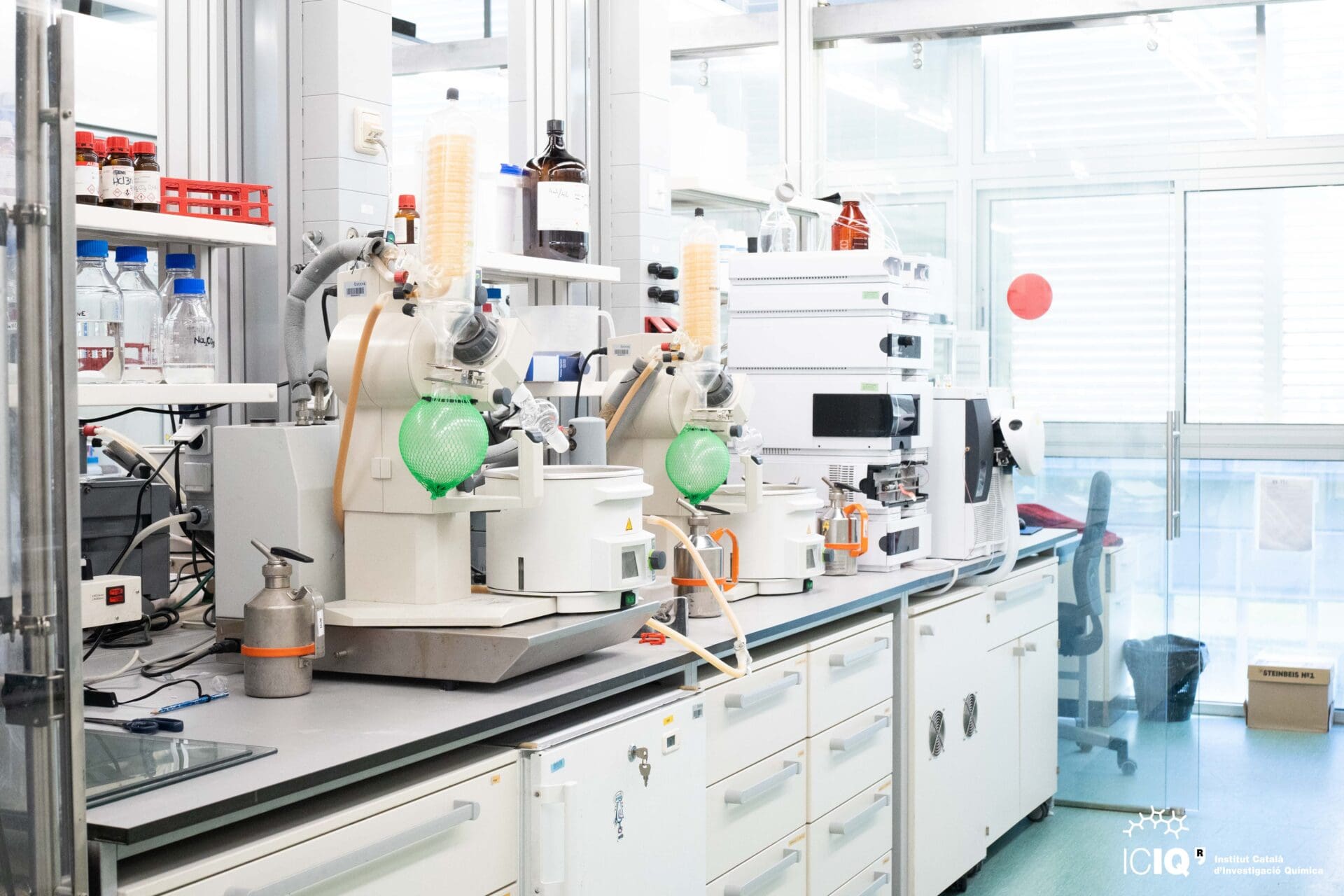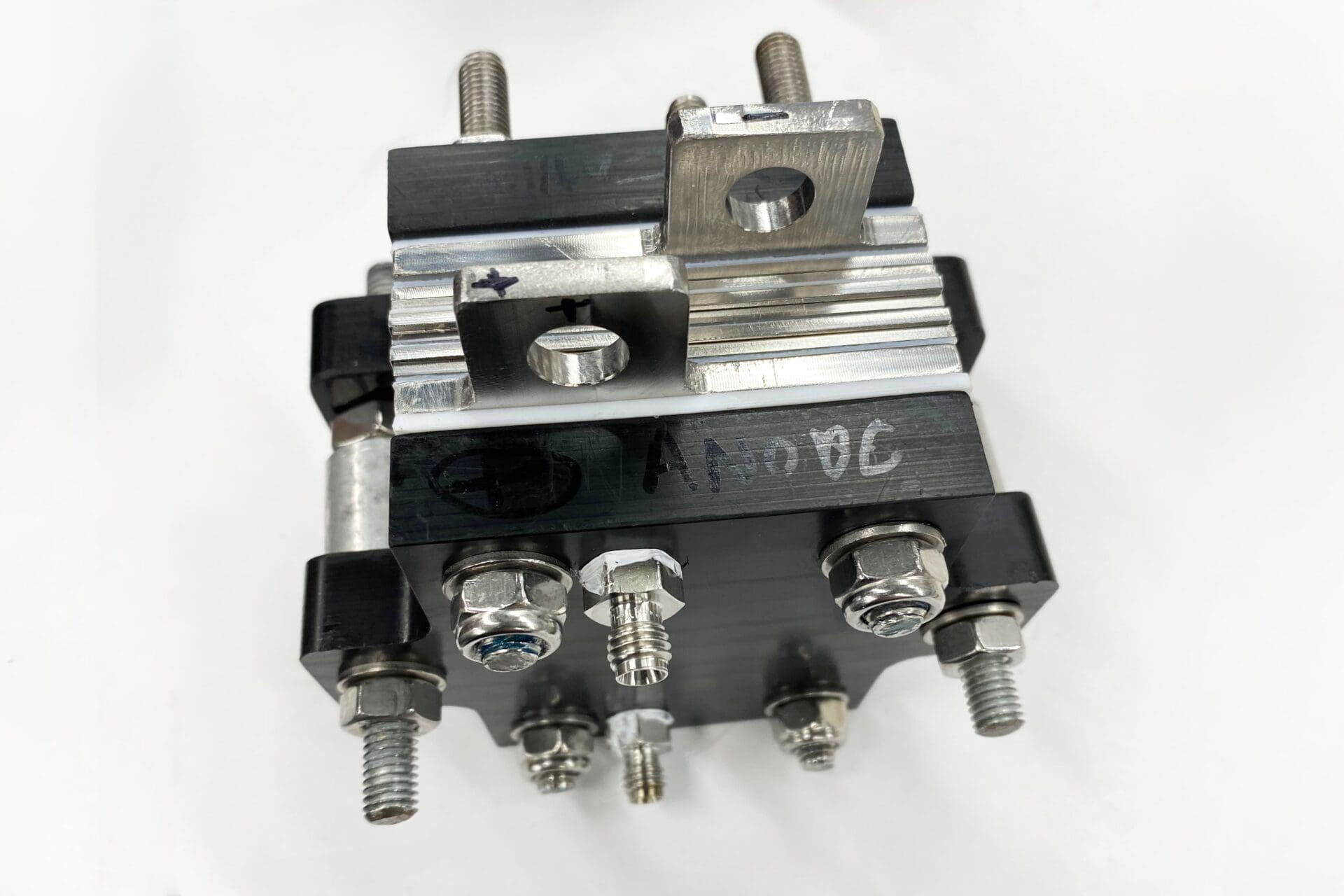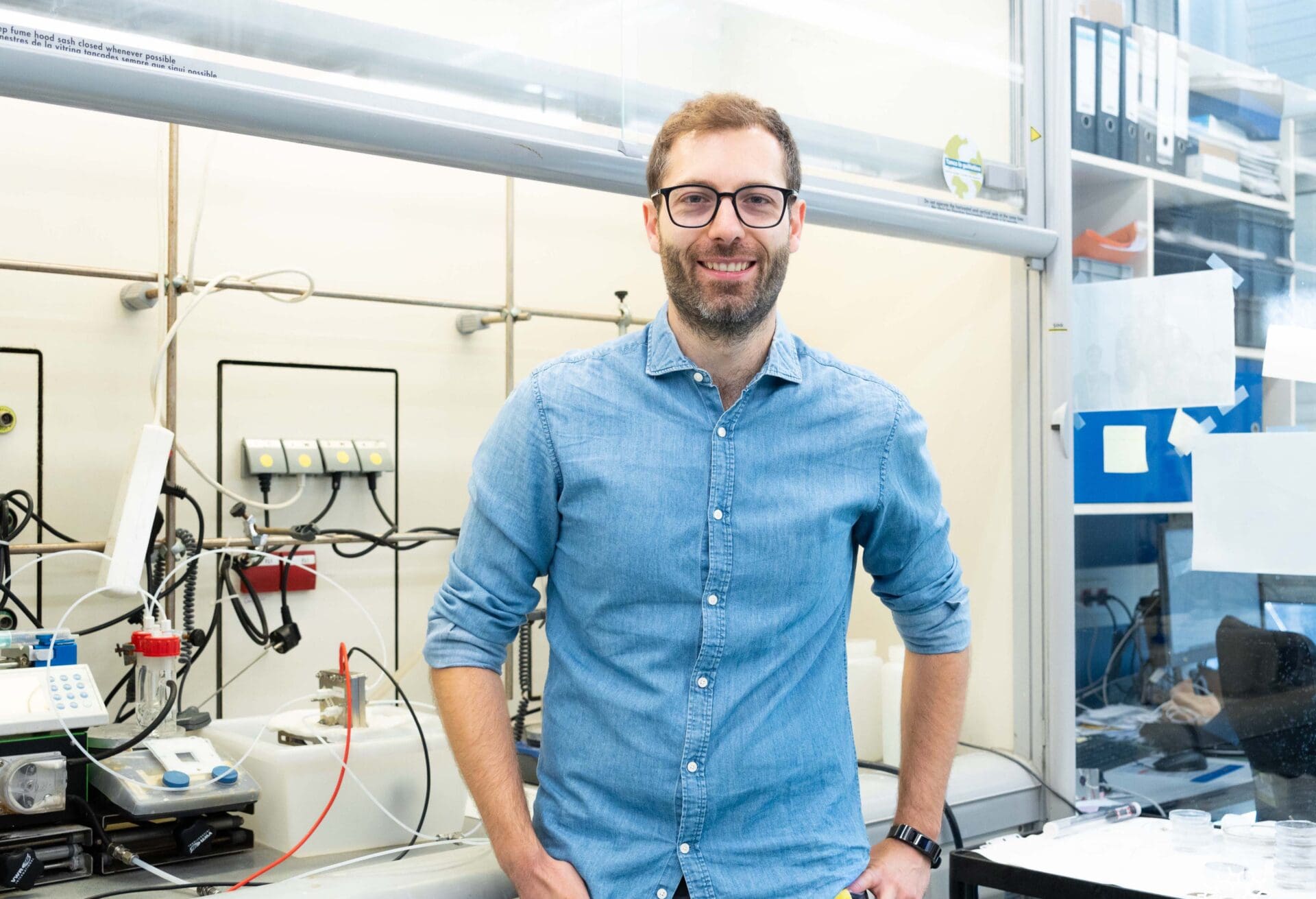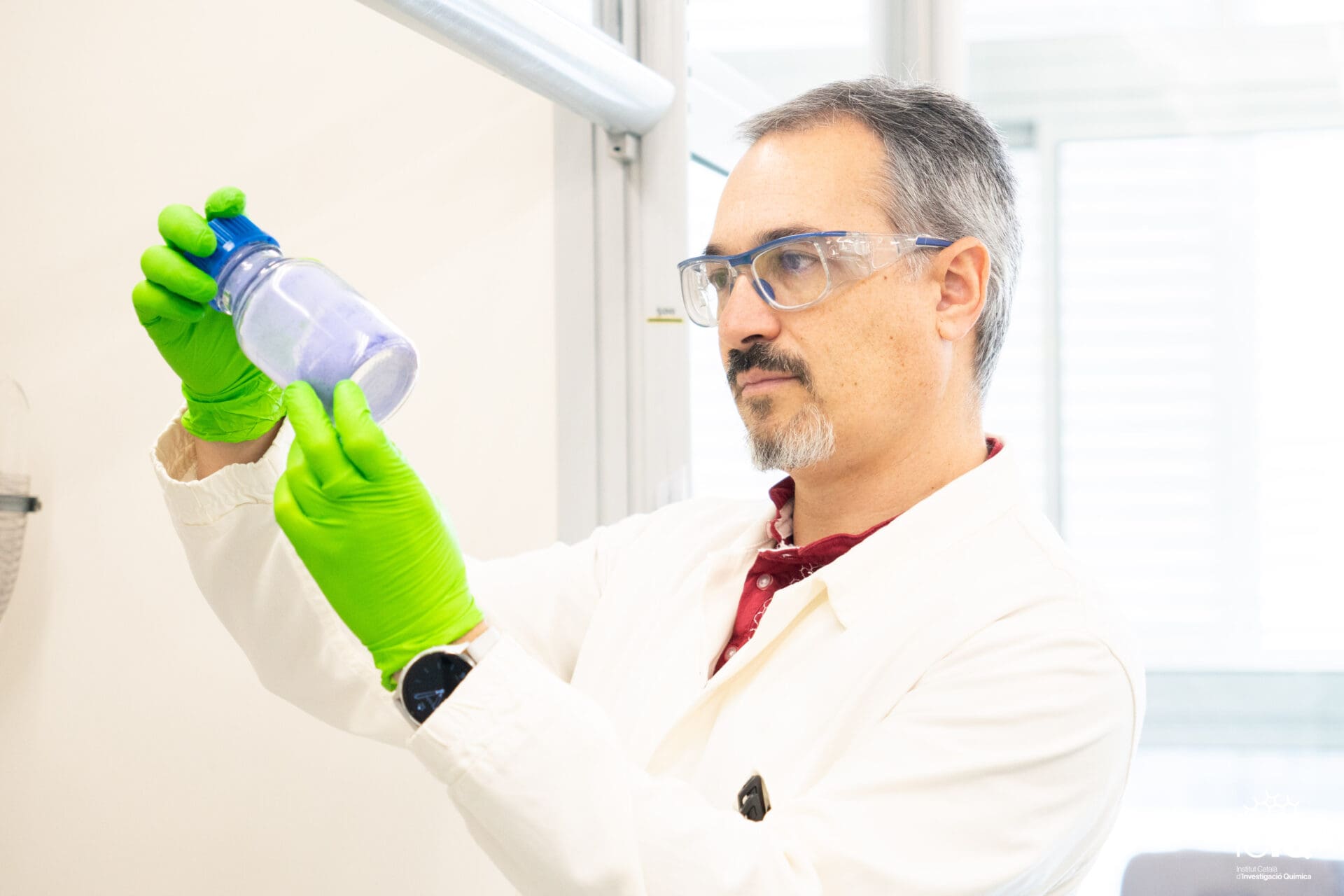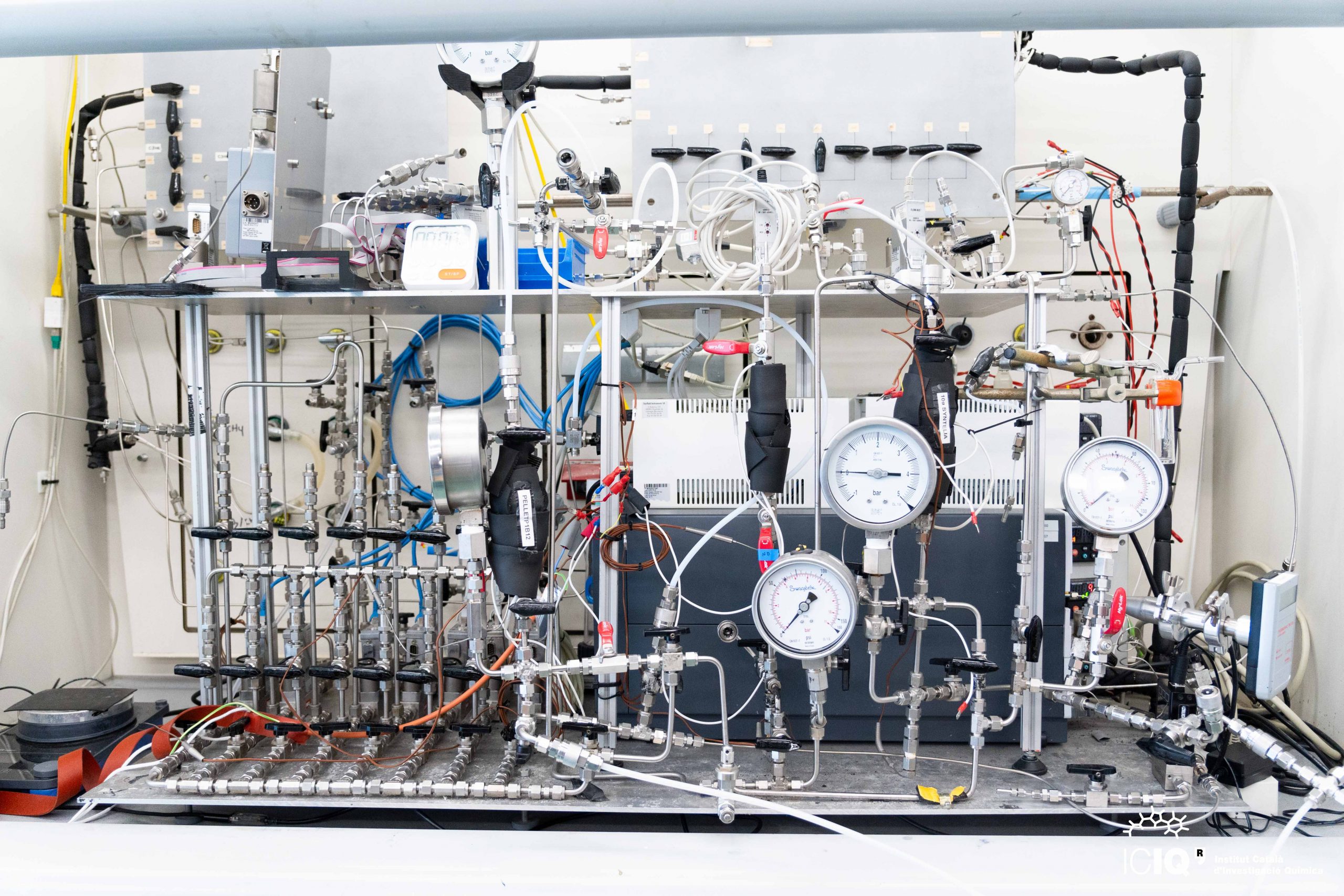4 industrial uses of Chromatography: the ultimate partner in purifying compounds
19th July 2023 -
This technique is essential to synthesis as it identifies, separates and purifies mixtures
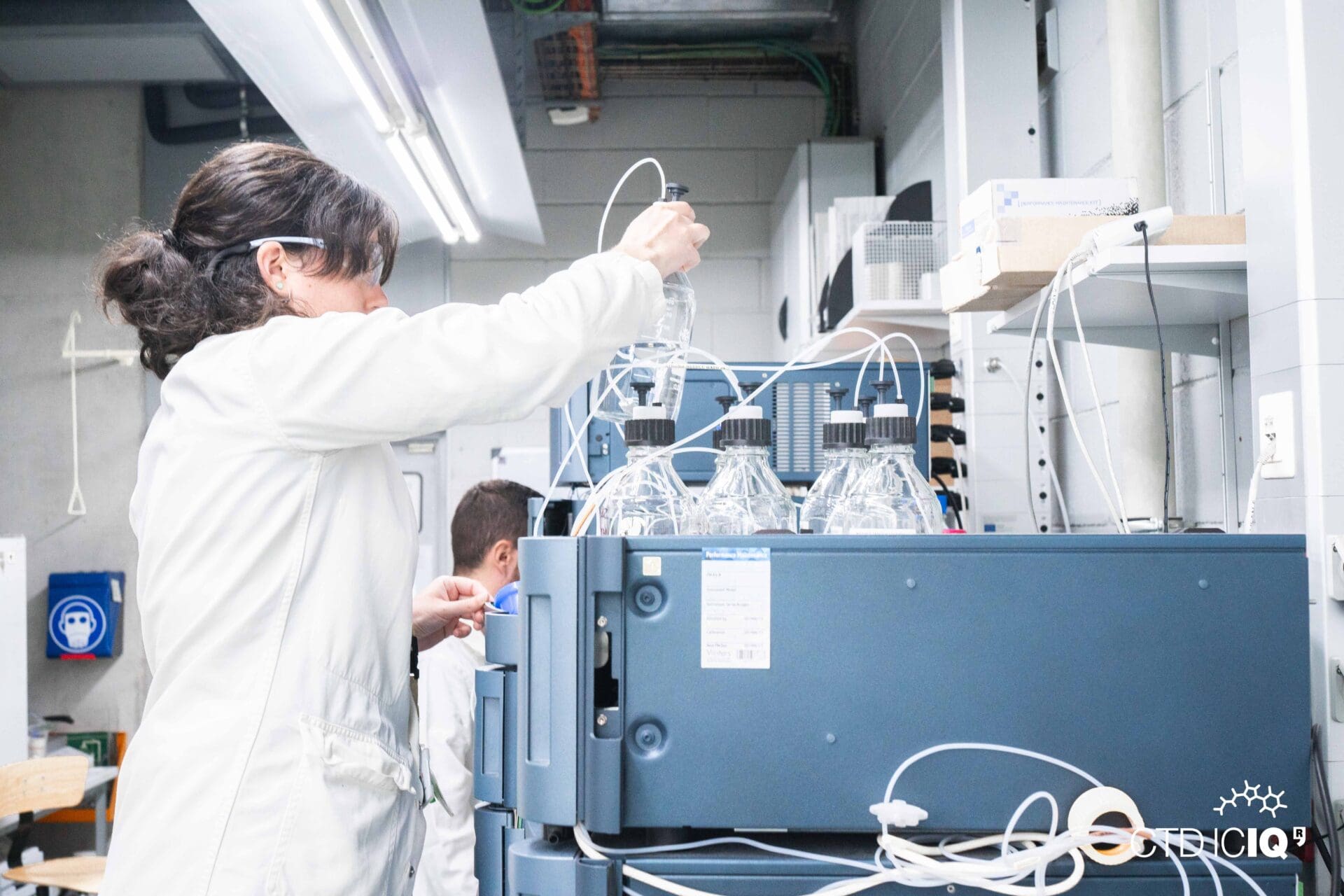
Do you want to identify the impurities in your gas mixture? Do you need to separate the components to purify drugs in the pharmaceutical or veterinary industry? Are you looking to detect residues of pesticides and other contaminants in food products?
Complex mixtures are no challenge for Chromatography. This analytical technique, part of the Characterization Technologies Department (CTD) in the Core Facilities Area of the Institute of Chemical Research of Catalonia (ICIQ), allows for the determination of chemical components in any type of mixture. It is one of the most powerful separation methodologies with a wide range of application in various industries such as pharmaceutical and veterinary drug development, food and beverage companies, biodiesel production and environmental analysis.
The ICIQ unit has the necessary equipment and expertise to perform Supercritical fluid chromatography (SFC), liquid and gas chromatography. This technique analyses mixture impurities and supports the separation, identification, and isolation of chiral and non-chiral compounds. ICIQ also possesses the capability to perform preparative chromatography, which enables the acquisition of purified samples.
Let’s explore four industrial uses of Chromatography:
- Pharma and animal health companies: chromatography plays a crucial role in quality control, regulatory compliance, and ensuring the safety and well-being of humans and animals. It enables accurate analysis, identification of impurities, and precise quantification of compounds, contributing to the development and production of safe and effective pharmaceutical and veterinary products.
- Food and beverage industry: it is used for several purposes in food and beverage industry. It helps in analysing and detecting residues of contaminants, such as pesticides and antibiotics, ensuring food safety. It is also employed to quantify food additives, profile flavours, authenticate product origins, and perform quality control testing. Additionally, it assists in allergen detection, ensuring consumers safety.
- Biodiesel production: is essential in biodiesel production, providing valuable insights and supporting critical processes. It is utilized for feedstock analysis, optimizing the transesterification reaction, purification and separation, and quality control. These applications contribute to the production of high-quality biodiesel that meets regulatory standards and performs effectively as a sustainable alternative to conventional diesel fuel.
- Environmental Analysis: it helps monitoring, analysing the pollution in air, water, and soil samples. It is particularly useful for volatile organic compounds analysis, which provides valuable insights into environmental pollution levels.
In summary, Chromatography enables accurate analysis, identification, and quantification of compounds, ensuring product quality, regulatory compliance, and environmental safety in industry. In this sense, the CTD team is open to partnering with companies on common projects using this state-of-the-art technology.

Related news

Let's create a brighter future
Join our team to work with renowned researchers, tackle groundbreaking
projects and contribute to meaningful scientific advancements






 19-02-2025
19-02-2025 